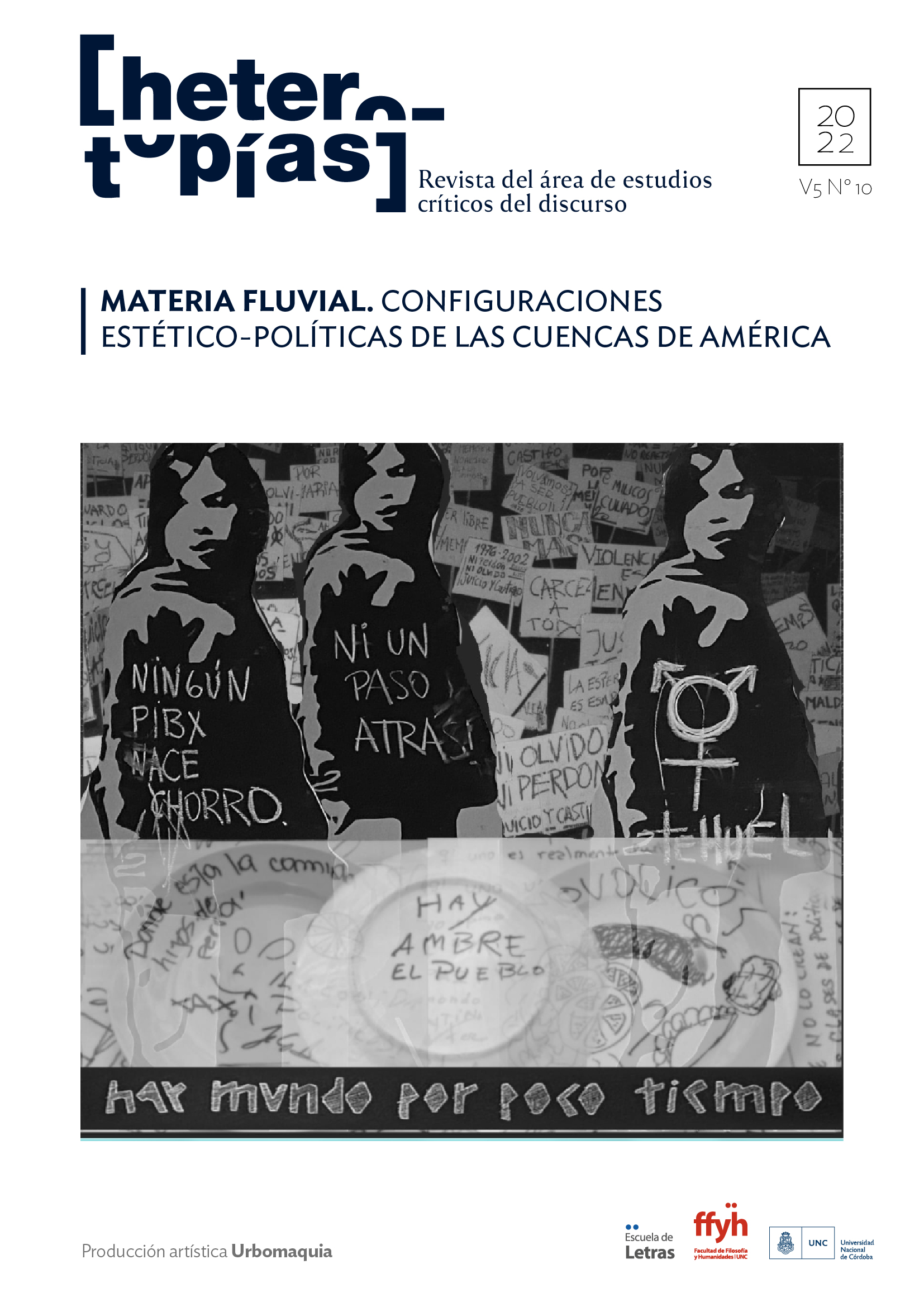Subject and truth: towards a genealogy of militant subjectivity
Main Article Content
Abstract
For some time I have inquired about the problematic of the subject and the truth, in conceptual and practical terms, always reading at the same time the intellectual debates within the left-wing thought and the situated political conjuncture (Author). However, lately and increasingly, especially because of the implications of the pandemic, I have decided to give greater emphasis to the practical role of philosophy and its force of subjective transformation at all possible levels. In this practical turn, as I call it, the question of militant subjectivities has been taking on greater prevalence in order to constitute a situated and critical thinking of the present (Author). I consider it necessary to make a genealogy of militant subjectivity that takes as main reference our recent history, to locate the limits of the present. In this sense, first of all, I would like to recount the encounter with two exemplary investigations that helped me to think of a possible thread of this genealogy: the relationship with the dead, ghosts and disappeared; I refer to the investigations of Mariana Tello Weiss and Vinciane Despret. Secondly, I want to open the field to new connections and compositions with other ongoing research and interventions that investigate this same problem. Finally, I would like to bring back those Foucaultian traces that outline a genealogy of revolutionary subjectivity to understand the limits of our current constitution.
Downloads
Article Details

This work is licensed under a Creative Commons Attribution-NonCommercial-ShareAlike 4.0 International License.
Those authors who have publications with this journal, accept the following terms: Those authors who have publications with this journal, accept the following terms:
a. The authors will keep their copyright and guarantee to the journal the right of first publication of their work, which will be simultaneously subject to the Creative Commons Attribution - Non-Commercial - Share Alike (by-nc-sa) Attribution License; no commercial use of the original work or any derivative works is allowed, the distribution of which must be done with a license equal to the one that regulates the original work.
b. Authors may adopt other non-exclusive license agreements for the distribution of the published version of the work (e.g., deposit it in an institutional telematic archive or publish it in a monographic volume) provided that the initial publication in this journal is indicated.
c. Authors are allowed and recommended to disseminate their work through the Internet (e.g. in institutional telematic archives or on their website) before and during the submission process, which may lead to interesting exchanges and increase the number of citations of the published work. (See The effect of open access).
How to Cite
References
Badiou, A. (1999). El ser y el acontecimiento. Buenos Aires: Manantial.
Del Barco, O. (2004). Carta de Oscar del Barco. La Intemperie, 17.
Despret, V. (2021). A la salud de los muertos. Relatos de quienes quedan. Buenos Aires: Cactus.
Farrán, R. (2014). Badiou y Lacan: el anudamiento del sujeto. Buenos Aires: Prometeo.
Farran, R. (2016). Nodal: método, estado, sujeto. Adrogué: La cebra/palinodia.
Farrán, R. (2018). Nodaléctica: un ejercicio de pensamiento materialista. Adrogué: La cebra.
Farrán, R. (2020). Leer, meditar, escribir: la práctica de la filosofía en pandemia. Adrogué: La cebra.
Farrán, R. (2021a). La razón de los afectos: populismo, feminismo, psicoanálisis. Buenos Aires: Prometeo.
Farrán, R. (2021b). Militantes, ¡ocúpense de sí mismos! Buenos Aires: La Red editorial.
Farrán, R. (2021c). Escribir, escuchar, transmitir: crítica, estado y sujeto en tiempos de pandemia. San Luis de Potosí: El diván negro.
Farrán, R. (2022). El giro práctico: ejercicios de filosofía, ética y política en la coyuntura. Córdoba: CIECS ediciones.
Foucault, M. (1999). La escritura de sí. En M. Foucault, Estética, ética y hermenéutica, Obras esenciales III. Buenos Aires: Paidós.
Foucault, M. (2013). Acerca de la genealogía de la ética. Un panorama del trabajo en curso. En E. Castro (ed.), La inquietud por la verdad. Escritos sobre la sexualidad y el sujeto. Buenos Aires: Siglo Veintiuno Editores.
Foucault, M. (2017). Dire vrai sur soi-même. Conférences prononcées à l´Université Victoria de Toronto, 1982. París: Librairie Philosophique J. Vrin.
Foucault, M. (2014). La hermenéutica del sujeto. Curso en el Collège de France 1981-1982. Buenos Aires: Fondo de Cultura Económica.
Hadot, P. (2006). Ejercicios espirituales y filosofía antigua. Madrid: Siruela.
Liberman, H. (1979). La ciudad de los muertos. Madrid: Círculo de lectores.
Monge, J. (2019). La revolución como ascesis de una ética materialista en Michel Foucault. Oxímora: Revista internacional de ética y política, 15(2), 116-136.
Palti, E. (2008). La crítica de la razón militante. Una reflexión con motivo de La fidelidad del olvido de Blas de Santos y el ‘affaire del Barco’. A Contracorriente, 2(5), 99-114.
Reati, F. y Simón, P. (2021). Filosofía de la incomunicación: las cartas clandestinas de la Unidad Penitenciaria 1 durante la dictadura (Córdoba, 1976-1979). Villa María: Eduvim.
TECME-Territorios Clínicos de la Memoria (productor). (2020). Poéticas del tiempo [videos de Youtube]. Recuperado de https://www.youtube.com/playlist?list=PL622mB3nqxfEjTRkkbD4EVY7vpHTPc89W
Tello Weiss, M. (2016). Historias de (des)aparecidos. Un abordaje antropológico sobre los fantasmas en los lugares donde se ejerció la represión política. Estudios en Antropología Social, 1(1), 33-49.
Vital Brasil, V., Rousseaux, F. y Conte, B. (2019). Reparación simbólica en América Latina como Política de Estado. La experiencia de asistencia a víctimas en Brasil y la Argentina. Clepsidra. Revista Interdisciplinaria de Estudios sobre Memoria, 12(6), 90-107.
